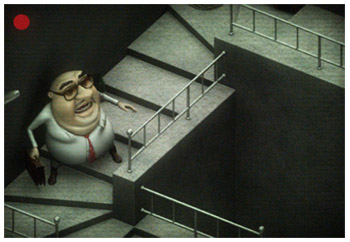Sometime back back, I noted the flap over the Arbitron Portable People Meter and the Petition by the Minority Media Telecommunications Council (MMTC) for the FCC to take action. The FCC put the Petition out on public notice last September, and has now issued a Notice of Inquiry on the matter.
As always, the questions are (a) why do we care about this? and (b) Even if we care, does the Commission have authority to do anything? In answering this last time, I observed: (a) we care because the entire economics of the radio industry are driven by ratings, and the FCC’s own rules rely on Arbitron ratings for a number of purposes, and (b) the FCC can always investigate anything related to its areas of jurisdiction. At worst, it provides a good forum for debate and an opportunity to tell Congress “Yo! this is important, somebody needs to do something about this for these reasons.” these are pretty much the conclusions the FCC comes to in its Notice. After observing in footnote 1 that it has broad powers to investigate, the Commission frames the questions as:
This NOI investigates the impact of PPM methodology on the broadcast industry as well as whether the audience ratings data is sufficiently accurate and reliable to merit the Commission’s own reliance on it in its rules, policies and procedures.
I am hopeful that we see a good, robust debate here although I don’t expect anything in the way of Earth-shattering revelations. There is an interesting problem of what information Arbitron will reveal about its processes, and whether the Commission will provide some assurances that it will keep proprietary information out of the public record. If it does, it makes it much harder for those who say the process is unfair to respond. But if it doesn’t, it’s analysis is going to be incomplete.
Mind you, it’s not at all clear what authority the FCC has over Arbitron directly. But the FCC can take certain actions if it doesn’t like what it sees, giving Arbitron incentive to play and try to resolve concerns. The FCC can declare Arbitron unreliable and no longer rely on it for regulatory determinations. That’s not exactly the kind of publicity you want if you make your living based on the accuracy of your ratings system. Alternatively, if the FCC doesn’t see anything wrong, it can always conclude that Arbitron remains acceptable for the FCC’s purposes. That will be of enormous assistance to Arbitron in removing any cloud over its rating system.
Bottom line, the NOI is a smart move by the Copps FCC on multiple levels. It doesn’t assert any authority, it doesn’t prejudge, and it services an important Democratic constituency. Hopefully, Arbitron and its critics will use the FCC as a neutral forum to develop an mutually acceptable solution.
Stay tuned . . . .




